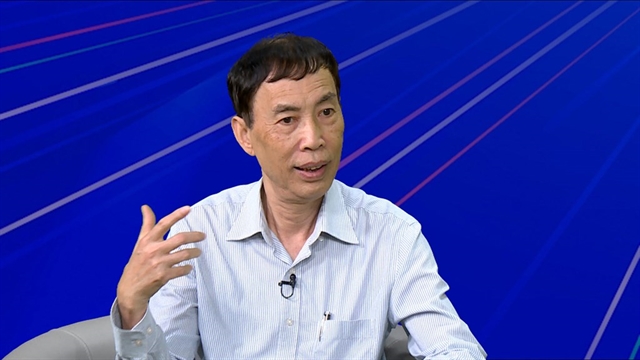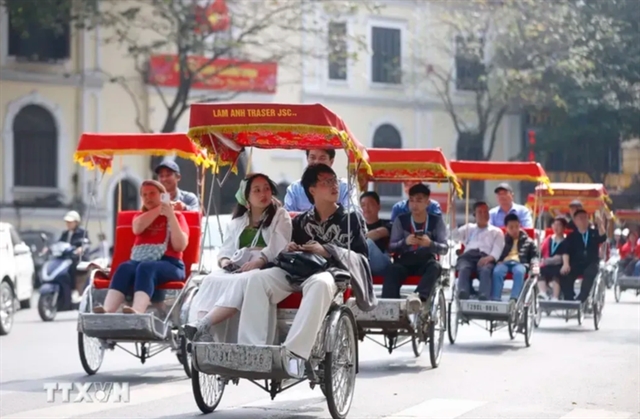 Society
Society

Representatives from the health ministry, international NGOs, donors, private-sectors companies and social enterprises discussed the private sector's role in financing efforts against HIV in Việt Nam at a workshop on Friday in Hà Nội.

|
| Deputy Minister of Health Trương Quốc Cường speaks at the workshop, entitled Private-Sector Engagement in Việt Nam's HIV Response, in Hà Nội on Friday. — VNS Thanh Hải |
HÀ NỘI — Representatives from the health ministry, international NGOs, donors, private-sectors companies and social enterprises discussed the private sector's role in financing efforts against HIV in Việt Nam at a workshop on Friday in Hà Nội.
The event, Private-Sector Engagement in Việt Nam's HIV Response, was organised by the Ministry of Health and USAID/PATH Healthy Markets. It was designed to discuss progress, key enablers and challenges, and to define direction for the "Ending AIDS by 2030" strategy.
Speaking at the event, Deputy Minister of Health Trương Quốc Cường said the private sector has greatly contributed to the fight against HIV/AIDS in Việt Nam, expanding access for patients and treatment services for HIV/AIDS prevention.
“Community organisations have played important roles in providing intervention tools for HIV transmission prevention like the distribution of needles and condoms,” said Cường. "More than 50 per cent of these intervention tools have been distributed in communities by peer groups and community organisations."
“Along with nearly 140,000 patients living with HIV being treated at the country’s public medical facilities, about 10,000 others are treated by the private medical sector, including facilities treating HIV/AIDS by drugs under the health insurance fund,” added Cường.
At the event, participants heard that the significant reduction in external donor funding for HIV prevention and control represented a key challenge to the Government's efforts to ensure a sustainable response to HIV, especially since Việt Nam adopted the Joint United Nations Programme on HIV/AIDS' 90-90-90 targets by 2020 and ending AIDS by 2030.
They agreed that apart from health coverage through social health insurance and local public financing, mobilising the private sector for commodities and services is crucial to sustaining the response. A total market approach would help grow a market by better targeting free or subsidised products and services and promoting the active engagement of the private sector for those who are able and willing to pay.
The Healthy Markets project is supported by the US President's Emergency Plan for AIDS Relief (PEPFAR) through the US Agency for International Development (USAID) and implemented by PATH. The project has partnered with the Ministry of Health and the Vietnam Administration for HIV/AIDS Control since 2014 to grow a viable commercial market for HIV-related products and services.
The six-year initiative aims to grow a viable market for HIV-related goods and services capable of meeting the needs of populations facing the greatest risks. It will also improve the environment for private sector and social enterprise engagement and investment.
Healthy Markets has brought together commercial businesses, social enterprises and community-based organisations (CSOs) to address critical gaps in the HIV response.
Surveys from nine private clinics, social enterprises and CSOs supported by Healthy Markets from the past five years suggest that a private-sector response to HIV can be financially self-sustainable.
The nine organisations represent a range of business models, from small-scale condom sales agents to a chain of private clinics. Their annual revenue more than doubled between 2016 and 2018, from US$355,886 to $863,033. The financial returns from these business models can catalyse greater domestic financing for Việt Nam's HIV response and advance self-reliance. — VNS




